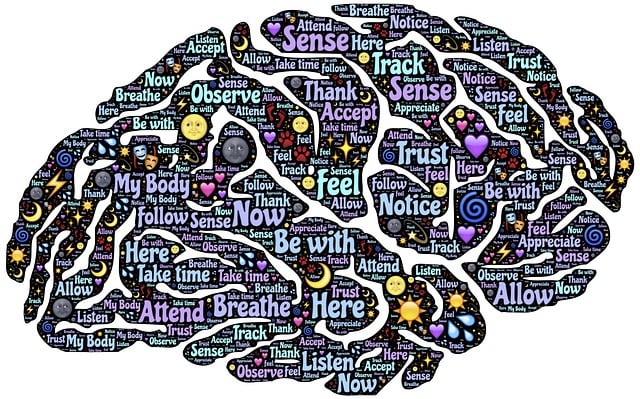Spanish-speaking communities face significant barriers in accessing mental health services due to language obstacles, limited insurance coverage, and a shortage of culturally competent professionals. To address this disparity, mental health professionals must implement specialized therapy programs employing bilingual therapists and culturally sensitive practices, ensuring effective communication and emotional healing for Spanish speakers. Community engagement, education, and advocacy efforts are crucial in reducing stigma, promoting accessibility, and shaping public policy to support equal access to mental health care, including tailored therapy for Spanish speaking individuals.
Mental health advocacy initiatives are crucial in addressing the unmet needs of Spanish-speaking communities, where disparities and barriers to care persist. This article explores several key aspects: The unique challenges faced by these communities, including language and cultural barriers, as well as stigma. It delves into effective therapy strategies tailored for Spanish speakers, community engagement tactics, and policy advocacy efforts pushing for equitable mental health services. By understanding these initiatives, we can foster a more inclusive and supportive environment for Spanish-speaking individuals seeking mental health support.
- The Unmet Need: Mental Health Disparities in Spanish-Speaking Communities
- Barriers to Care: Language, Culture, and Stigma
- Therapy for Spanish Speaking Individuals: Overcoming Language Obstacles
- Community Engagement and Education: Building Trust and Awareness
- Policy Advocacy: Push for Equitable Mental Health Services
The Unmet Need: Mental Health Disparities in Spanish-Speaking Communities

In many Spanish-speaking communities, there exists a significant and often unmet need for accessible mental health services tailored to their cultural nuances. Language barriers, limited insurance coverage, and a lack of culturally competent professionals contribute to disparities in care. Many individuals within these communities face challenges in finding therapy for Spanish speaking needs, leading to untreated or mismanaged mental health issues. This is particularly concerning given the higher prevalence of certain mental health conditions among Hispanic/Latino populations compared to their non-Hispanic counterparts.
The consequences of these disparities are far-reaching. Without adequate support, Spanish-speaking individuals may struggle with low self-esteem improvement and face increased risks for severe mental health episodes. To address this critical issue, mental health professionals must implement effective risk management planning while fostering empathy building strategies that resonate within these cultural contexts. By increasing access to services and promoting understanding, we can work towards bridging the gap in mental health care for Spanish-speaking communities.
Barriers to Care: Language, Culture, and Stigma

Many individuals from diverse cultural and linguistic backgrounds face significant barriers when accessing mental health care. Language serves as a prominent obstacle, especially for Spanish-speaking folks who may struggle to find therapists who share their native tongue. This challenge hinders open communication, a crucial aspect of therapy, and can lead to misdiagnosis or inadequate treatment plans.
Cultural differences also play a pivotal role in shaping mental health experiences. Stigma surrounding emotional wellness varies across cultures, impacting help-seeking behaviors. Promoting understanding and acceptance through emotional well-being promotion techniques tailored to diverse communities is essential. By addressing these barriers, we can ensure that everyone, regardless of their language or cultural background, has equal access to mental health awareness and the support they need to thrive.
Therapy for Spanish Speaking Individuals: Overcoming Language Obstacles

Providing therapy for Spanish-speaking individuals involves overcoming language obstacles to ensure effective communication and emotional healing processes. Many mental health services are predominantly English-based, leaving a significant gap in support for those whose primary language is Spanish. This linguistic barrier can prevent folks from accessing the care they need, hindering self-esteem improvement and emotional intelligence development.
Specialized therapy programs designed to cater to Spanish-speaking communities address these challenges by employing bilingual therapists who facilitate meaningful conversations in Spanish. By offering culturally sensitive practices and utilizing tools like translation services or multilingual resources, these initiatives promote trust and understanding, creating safe spaces for individuals to process their experiences and work towards their emotional well-being.
Community Engagement and Education: Building Trust and Awareness

Community engagement and education are vital components of mental health advocacy initiatives. By bringing awareness to diverse communities, especially those with limited access to resources like therapy for Spanish-speaking individuals, we can build trust and foster understanding. Through cultural sensitivity training and targeted outreach programs, mental health professionals can develop empathy building strategies that address specific needs. This approach not only helps in reducing the stigma surrounding mental illness but also ensures that support systems are accessible and culturally competent.
Engaging with communities requires a deep understanding of their unique challenges and strengths. Implementing crisis intervention guidance tailored to these contexts can make a significant difference in managing and preventing mental health crises. By involving community leaders, educators, and peer supporters, we can create a network of care that resonates with the culture and values of the people it serves. This collaborative effort is key to sustaining long-term Mental Illness Stigma Reduction Efforts and promoting overall well-being.
Policy Advocacy: Push for Equitable Mental Health Services

Mental health advocacy initiatives play a vital role in shaping public policy and ensuring equitable access to mental health services, especially for marginalized communities like Spanish-speaking individuals. Policy advocates push for legislation that promotes cultural competency in healthcare, advocating for specialized therapy for Spanish speakers to bridge communication gaps and improve care quality. This involves educating policymakers about the unique challenges faced by these populations, including language barriers and cultural differences, which can hinder access to effective treatment.
By highlighting the importance of self-care routine development for better mental health and burnout prevention strategies for healthcare providers, advocates emphasize the need for holistic support. They argue that fostering inner strength development through such initiatives not only benefits individuals but also strengthens community resilience. This comprehensive approach ensures that policies address the diverse needs of society, promoting mental well-being on a broader scale.
Mental health advocacy initiatives play a pivotal role in addressing disparities faced by Spanish-speaking communities. By overcoming language barriers, fostering community engagement, and advocating for policy changes, we can ensure equitable access to mental health services. Specifically, implementing culturally sensitive therapy for Spanish speaking individuals, coupled with comprehensive education and awareness programs, is crucial. Ultimately, these efforts will lead to improved mental well-being among all segments of society, including vibrant Spanish-speaking communities.














